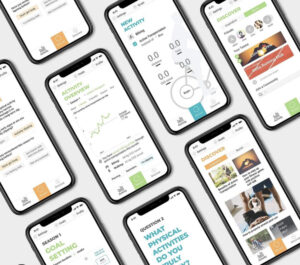
University of Twente, Industrial Design Engineering and Interaction Technology MSc students, Fredrika Åström, Jules Verkade and Thijs de Kleijn worked on the effects of seasons on people’s physical activity fluctutions and came up with “Seasons” self-management tool in our Design and Behaviour Change MSc course. Happy to hear that the work, co-authored by me, has been accepted to CHI2021, the top Human-Computer Interaction publication venue (h5-index=95), as Late-Breaking Work Paper (LBW).
In the paper, we explored how self-tracking tools could support realistic goal-setting and help individuals circumvent significant (re)lapses into sedentary behaviour, by acknowledging and managing seasonal barriers to PA. Two research questions guided our study: (1) How do barriers to PA, especially seasonal variability and personal circumstances, influence people’s PA patterns? and (2) How can a tool be designed to promote PA maintenance, by acknowledging the influence of seasonal variability and personal circumstances?
Our findings suggest that existing tracking tools do not identify the barriers that individuals face to remain physically active and do not acknowledge the common occurrence of physical activity variations. By encouraging a compassionate approach to managing unpredictable circumstances in an individual’s life, Seasons recognizes the significant influence of external and internal factors on PA maintenance, such as seasonal variability, a loss of motivation, an injury, a busier work schedule, or a global health crisis such as the COVID-19 outbreak in 2020.
Please do not hesitate to send me an email if you are interested in reading unpublished copy of the paper.
